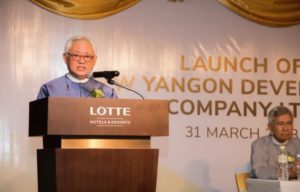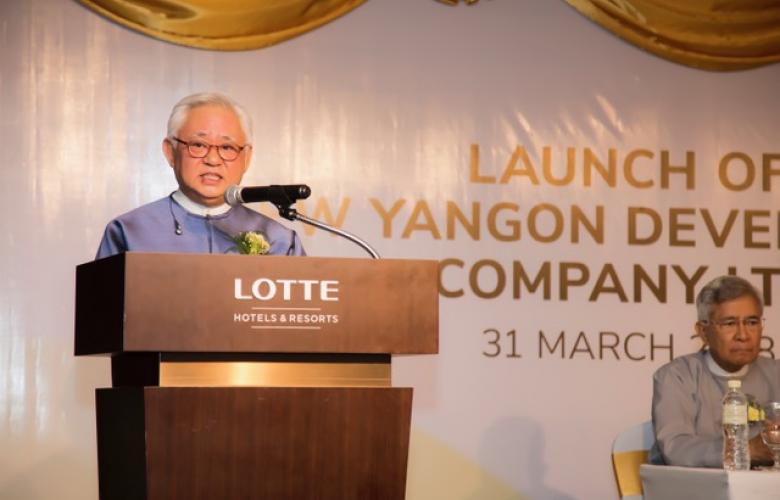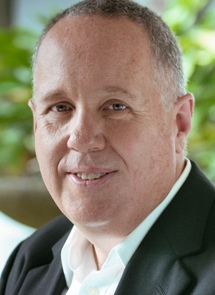
New Yangon Development Company (NYDC) CEO says New Yangon City Project will move forward
The CEO of the company slated to develop the controversial New Yangon City project on the west bank of the Yangon River says he is hopeful that the project will commence this year and that he believes there will be no changes to the project plans, despite Myanmar and China’s economies facing significant slowdowns due to the COVID-19 pandemic.
“No matter how the government makes its decisions [about the project], no matter whether the scale of the project is big or small, I think the project must proceed,” said Serge Pun, CEO of New Yangon Development Company (NYDC).
“By looking at the Myanmar government’s Economic Relief Plan (CERP), I believe the project will move forward,” he said.
The Yangon government-backed NYDC signed a US$1.5-billion framework agreement in 2018 with Beijing-based China Communications Construction Company, Ltd. (CCCC) to draw up a proposal for the infrastructure project. The 20,000-acre New Yangon City project is expected to be twice the size of Singapore and is one of the projects under China’s ambitious Belt and Road Initiative (BRI).
However, the project has been a source of controversy due to its flood-prone location as well as CCCC’s involvement. The Hong Kong-listed, Chinese state-owned company has been accused of engaging in corruption and bribery relating to development deals in at least 10 countries in Africa and Asia, from the Philippines to Bangladesh to Tanzania, according to international media reports.
In a livestream on his Facebook on Friday, Serge Pun responded to questions about whether BRI projects in Myanmar are delayed due to COVID-19 by saying that there should be no doubt that infrastructure projects under the BRI will continue. He added that they may even accelerate as the CERP offers support for mega-infrastructure projects to mitigate the effects of COVID-19.
After reading the relief plan, Serge Pun said “I am even more confident some of these mega- infrastructure [BRI] projects will proceed.”
Launched in early May, the CERP seeks to mitigate the economic impact of the pandemic by implementing new measures and response plans. The measures include steps to expedite the solicitation of strategic infrastructure projects and measures to use fast-track procedures to approve and disclose large investments by reputable international firms that may be currently experiencing delays.
Soon after the CERP launched, Chinese Ambassador to Myanmar Chen Hai met with Deputy Minister for Planning, Finance and Industry U Set Aung and discussed how to move forward on the development of China’s ambitious projects in Myanmar based on the CERP. The projects discussed included New Yangon City, Kyaukphyu Deep-Sea Port and Special Economic Zone and the China-Myanmar Border Economic Cooperation Zone.
In a phone conversation with Myanmar President U Win Myint last Wednesday, Chinese President Xi Jinping said that he is expecting the two sides will cooperate closely and speed up the implementation of projects under the BRI that were agreed to during his visit to Myanmar earlier this year.
During Xi’s visit to Myanmar, the two sides inked a concession agreement and shareholders’ agreement for Kyaukphyu SEZ, a letter of intent on the development of Yangon City and a memorandum of understanding to accelerate negotiations around the Ruili-Muse Cross-Border Economic Cooperation Zone.
Since late February, Myanmar’s economy has seen a significant slowdown due to COVID-19. Thousands of people have been laid off due to the closure of factories and companies in the tourism and garment industries, including small and medium-sized enterprises. Thousands of now-jobless Myanmar migrants have returned from Thailand, Malaysia and China since late March.
“It is very important to procced [with BRI projects ]…because one of the major difficulties we will face post-COVID-19 is unemployment,” Serge Pun said.
“In order to counter these difficulties, the most effective option is to create employment. In these circumstances, the most effective way to create employment is to start mega-infrastructure projects,” he said.
Recently, experts have warned that Myanmar should be careful about investing in BRI mega-infrastructure projects as the country’s budget is already stretched beyond capacity from efforts to revive businesses hit badly by COVID-19 and upgrade health care systems at the same time. Experts warned that because of the enormous investments required for BRI projects, the country could then easily fall into an unstable debt trap due to the economic impacts of COVID-19.
Serge Pun said that the New Yangon City project will benefit thousands of people by giving them job opportunities.
“I am really hopeful that [workers] would start [on the project] and that they would become one of the main inputs to help us and to mitigate the negative effects of COVID-19,” he stressed.
Source: https://www.irrawaddy.com/news/burma/nydc-ceo-says-new-yangon-city-project-will-move-forward.html



